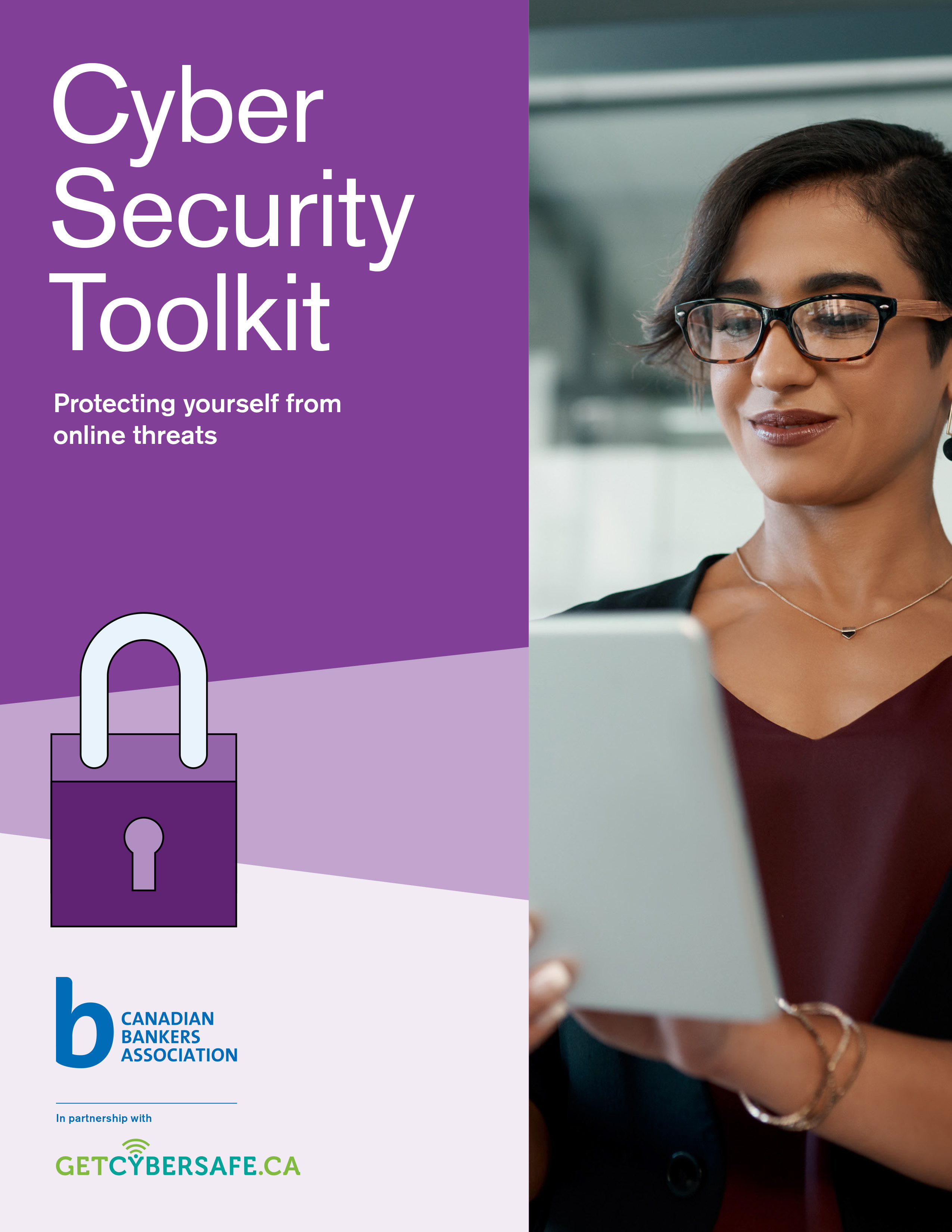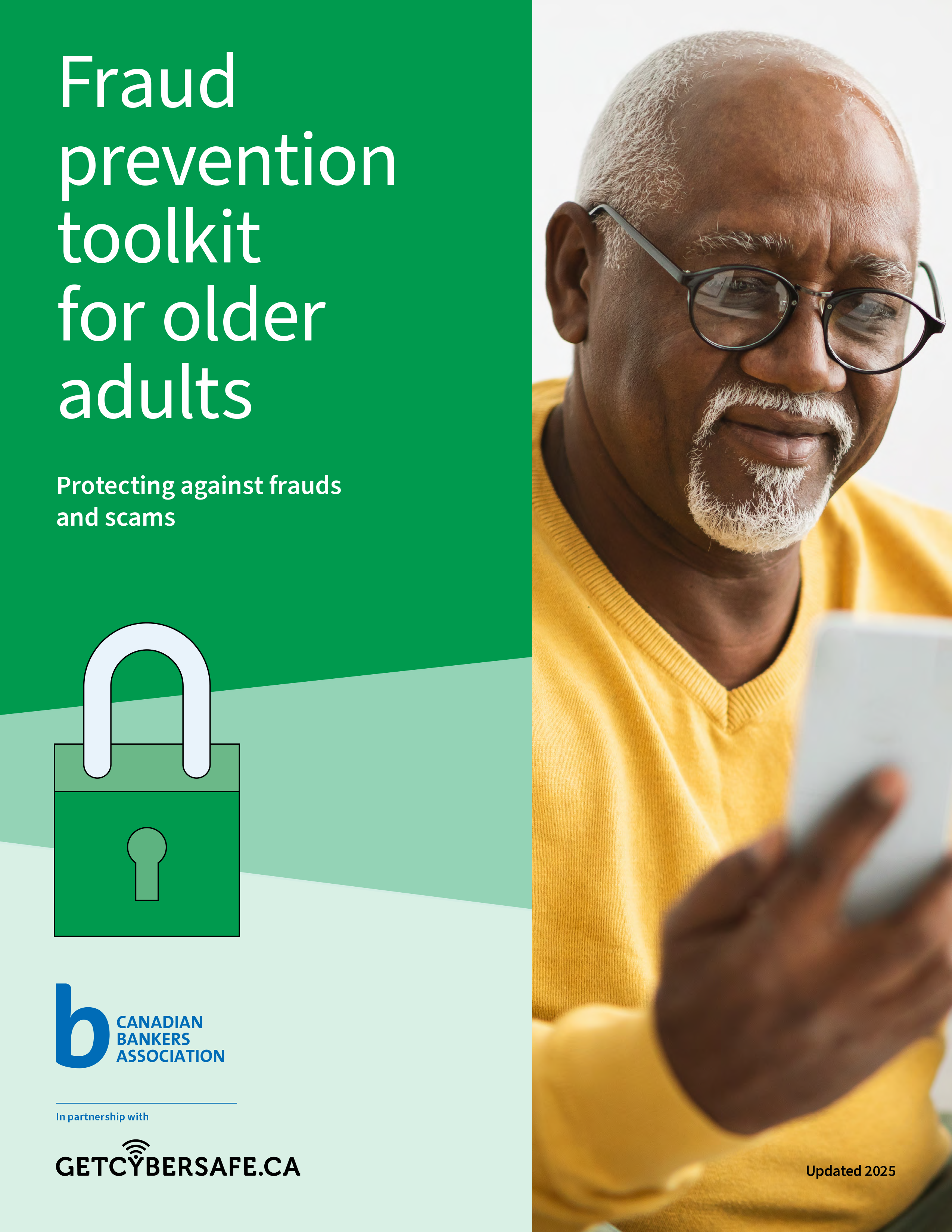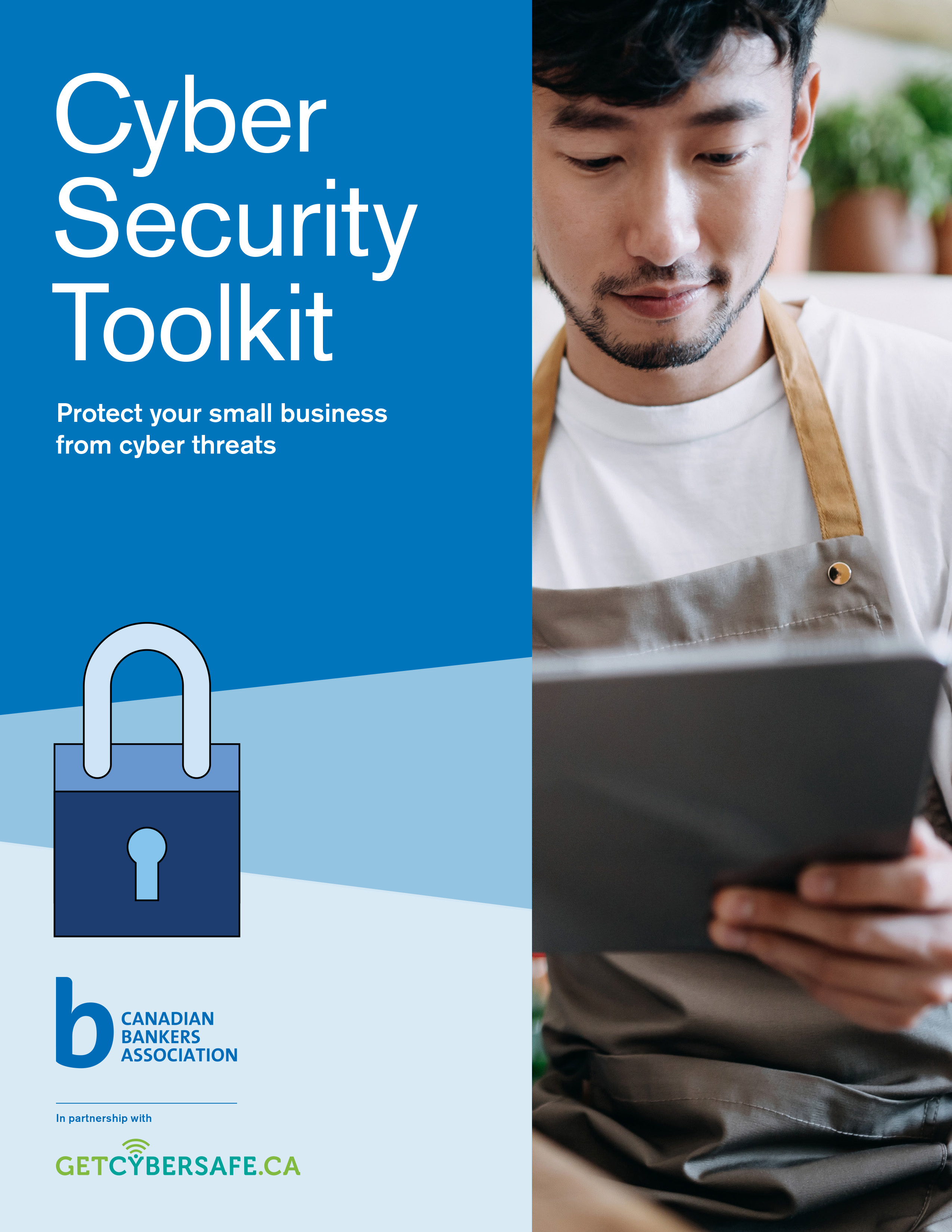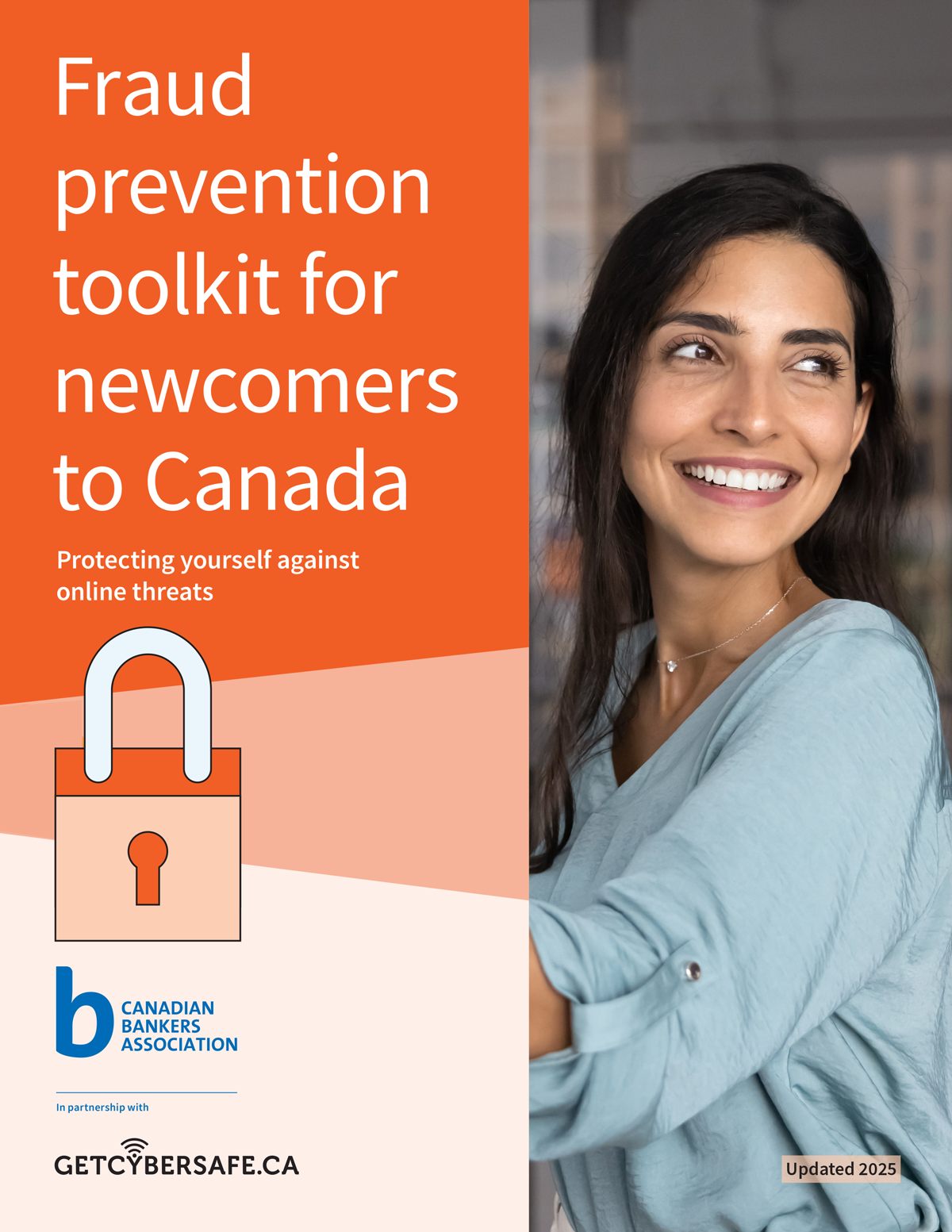Article
How banks are helping in the fight against fraud and scams
Banks in Canada take the issue of fraud, cyber security and data protection very seriously and they are working around the clock to safeguard your money and your personal information. Cyber security measures and procedures are part of the banks’ overall security approach that includes teams of security experts that monitor transactions, prevent and detect fraud and maintain security of customer accounts.
Banks are recognized for their leading fraud prevention and cyber security practices and their strong investments in technology and security measures. Over the past decade, banks have spent $120 billion on technology, which includes technology dedicated to security measures.
In the unlikely event of a breach of their security safeguards, banks in Canada are obligated to notify the Office of the Privacy Commissioner, any impacted individuals, and any other organization or government institution that may be able to mitigate harm or reduce the risk of harm from the incident.
Collaborating with others
The financial system is part of Canada's critical infrastructure; as such, banks work closely with each other and with regulators, law enforcement and all levels of government to continuously share best practices and information to address the growing challenges posed by cyber crime.
The CBA believes that a strong collaborative effort across sectors between public and private sectors can address the ever evolving and accelerating threats of scam and fraud and reduce its occurrence.
The Canadian Anti-Scam Coalition
That’s why the CBA and Canada’s banks took a leadership role in preventing scams by convening and leading an anti-scam alliance that brought together stakeholders from across sectors to help combat this growing issue.
To date, over 50 organizations are participating with involvement from financial, telecom sectors, digital platforms, law enforcement and government. The made in Canada Canadian Anti‑Scam Coalition is actively engaged on cross-sector opportunities to address the growing threat of scams.
What Canadians can do to protect themselves
While banks have extensive security systems in place and work around the clock to protect customers from fraud and assist police in their investigations, consumers have a role to play in protecting themselves as well.
The CBA website has many articles on its website at cba.ca/for-canadians/scam-prevention on how to recognize online threats. Canadians can sign up to receive Fraud Prevention Tips by email on the CBA website at cba.ca/forms/newsletter-subscription and find more information on fraud prevention from the fraud prevention learning guide.
There are also simple steps that you can take right now to better recognize fraud and protect yourself.
Protect your computer and mobile devices
- Protect your devices against malicious software by installing anti-virus, anti-spyware and Internet firewall tools on all your devices. Make sure that you keep these programs active and updated to keep your information protected
- Be cautious when using free public WiFi to conduct financial transactions. Criminals may be able to access your information
- Only download banking apps directly from your bank or a reputable app store that your bank directs you to. Criminals can create legitimate-looking banking apps that can steal your personal and financial information
Use unique passwords and passphrases
- Choose secure passwords or passphrases. And don’t reuse passwords on multiple websites. Why? Cyber criminals are counting on using your stolen passwords to access other sites in a technique known as "credential stuffing." When customer data is stolen in a cyber security breach or theft, information including usernames and passwords can be leaked or sold to other hackers
- Credential stuffing occurs when cyber criminals "stuff" stolen login credentials into a program that attempts to fraudulently log in to other sites, including your bank account. And if you’re using the same login credentials across several websites, this increases the chances that fraudsters will be successful in accessing your accounts
- The best way to protect against credential stuffing is to develop a unique password or passphrase for each of your online accounts, especially sensitive accounts like your bank account and your main email account. A security breach at one site means your password could be handed to criminals who may try to use it at other sites where you’ve used the same login
Learn to spot fraudulent emails
"Phishing" emails are fraudulent email messages and websites that look like they are from a legitimate organization, such as a bank, credit card company, online retailer or government agency. The email you receive may look real, with company logos and branding, but are attempts to steal your personal and financial information. Learn about the four red flag of a phishing scam and take the following steps to protect yourself:
- Be skeptical. Fraudulent emails can look like they come from a real bank email address. If you have any doubts about whether an email is from your bank or a reputable organization, contact them before responding to ensure that it is legitimate
- Never send or confirm your personal or financial information by email
- Always enter your bank’s website using the website address (URL) that you know is accurate. Contact your bank to get the correct website address if you’re unsure
- Check the domain name shown as the link in the email. When you click the link, if it does not match the name that appears in the browser at the top of the screen, then it may be a fraudulent website
- Regularly review your bank and credit card statements to ensure that all transactions were made by you
- Check your credit report at least once a year by contacting credit reporting agencies Equifax Canada or TransUnion Canada
Protect against credit and debit card fraud
Banks and credit card companies take significant steps to protect customers and minimize fraud as much as possible. For example, did you know that:
- Banks’ systems can automatically detect unusual activity in a customer’s account? This means that steps can be taken to prevent fraud from occurring
- Visa, MasterCard, American Express and Interac have zero liability policies in the case of unauthorized transactions? This means if you are a victim of fraud, you won’t be held responsible
There are steps you can take to protect yourself, including:
- Report a lost or stolen card as soon as you notice it is gone
- Regularly check your transactions online or on your monthly statement. If there are any transactions that you didn’t make, report them to your bank or card issuer right away
- Never give out your card number over the phone or online unless you know you are dealing with a reputable company
- Scammers will try to trick people into revealing information about their credit cards either over the phone or through email. It’s important to know that your bank or credit card company would never call or email to ask for personal information like your credit card number, expiry date, PIN, or the security number on the back of your card
Guard against financial abuse
Financial abuse occurs when someone tries to take or control assets that don’t belong to them for their own benefit. These assets can include money, property or personal information. The most common way this is done is through abuse of powers of attorney or inappropriate use of joint bank accounts.
The CBA has more information about how consumers can protect themselves from financial abuse, including information about powers of attorney and appropriate use of joint accounts on its website.
Stay up to date with cyber safety toolkits
With a cyber hygiene checklist and tips on how to spot common scams, the CBA’s Cyber Security Toolkit can help you protect against online financial fraud. Download a copy at
cba.ca/article/cyber-security-toolkit

The CBA’s Fraud Prevention Toolkit for Older Adults created in collaboration with the Government of Canada’s Get Cyber Safe campaign, includes a fraud prevention checklist and tips to avoid phone fraud. The toolkit also provides recommendations on how to choose strong passwords and offers information on how to recognize and prevent financial abuse.

With checklists and a printable poster for employees on how to spot common scams, the CBA’s Small Business Cyber Security Toolkit, created in partnership with Get Cyber Safe, can help you protect your small business from cyber threats.

The Fraud Prevention Toolkit for Newcomers to Canada provides tailored cyber hygiene best practices along with tips to help newcomers avoid scams common in Canada.

Scam prevention seminars available
Through the CBA’s Your Money Students program, volunteer bankers provide money management seminars to local high school student and discuss how to keep their money safe and avoid scams.
The CBA offers a free fraud prevention seminar for seniors as part of its Your Money Seniors financial literacy seminar program.
Find out more about CBA financial literacy resources at cba.ca/for-canadians/financial-literacy.
Questions?
If you have general questions about banking in Canada, call the Canadian Bankers Association’s Banking Information Line at 1-800-263-0231 or send an email to inform@cba.ca.
(Please note that if you believe that you have been a victim of fraud, you should contact your bank immediately.)
More Information
The Canadian Bankers Association website has extensive information on fraud prevention.
The CBA also distributes regular free fraud prevention tips by email. Sign up!